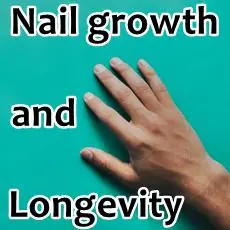A 10% lifespan extension
A new study published in Nature on February 3, 2025 (1) suggests that combining regular exercise with omega-3 and vitamin D can help slow down the biological aging clocks by up to 3 or 4 months over a 3-year period.
Prior studies by the team found that omega-3s supplementation reduced the risk of falls in older adults by 10% (a) and that daily doses of vitamin D, omega-3s, combined with SHEP "showed cumulative reduction in the cancer risk by up to 61% (b) in healthy and active adults aged 70 years and over. Vitamin D also reduces the risk of infection by up to 13% (c)
They decided to look at all factors in isolation or combined, to investigate their effect on aging.
This study used data from 777 healthy active adults aged 70 years or older (average age was 75) who were part of the DO-HEALTH Bio-Age trial conducted between 2012 and 2014. These subjects were all Swiss.
These were randomly assigned to eight groups and followed up yearly for 3 years. The groups consumed individually or in combination, 2,000 IU of vitamin D, omega-3 (1 g per day: 330 mg of EPA plus 660 mg of marine algae DHA), or a simple home exercise program (SHEP) three times a week, for 30 minutes that was focused on joint-flexibility.
Their blood was sampled and DNA was collected to measure biological aging using DNA methylation (DNAm) as a "clock".
These were healthy older adults, who lived in their homes, and were free of chronic diseases like cancer, disabilities, and cognitive impairment; almost 90% of them were physically active.
The authors reported that omega-3 supplementation has a larger effect on subjects who had an initial (baseline) level of vitamin D, as measured by 25(OH)D blood levels above 25 ng/ml, which is below the level of 50 ng/ml considered optimal. The baseline average 25(OH)D level was 23.6 ng/ml. Those with lower baseline levels of omega-3s also experienced a larger effect in the aging slowdown. The group as a whole had a lower initial blood level of omega-3s which the authors suggest could be caused by the landlocked geography of Switzerland, and that this "may have supported the benefit of omega-3 supplementation on biological aging in this subsample of DO-HEALTH."
Our analysis provides evidence supporting the geroprotective benefits of omega-3 supplementation and also suggests the benefits of additive combinations of omega-3 supplementation with vitamin D supplementation and exercise. Bischoff-Ferrari, H.A., Gängler, S., Wieczorek, M. et al., (2025) (1)
Epigenetic Clocks
The study used four different "clocks" to measure biological aging and then compared it with the chronological age of the subjects.
Biological age is measured by the rate of DNA methylation or DNAm. To obtain reliable data, the study used four different DNAm clocks, the PhenoAge, GrimAge, GrimAge2, and DunedinPACE to estimate age.
By itself, supplementation with omega-3 alone slowed three of the four DNAm clocks (PhenoAge, GrimAge2, and DunedinPACE), and the three treatments (omega-3, vitamin D, and exercise) had additive benefits on PhenoAge.
The study found that biological aging was slowed down by 2.9 to 3.8 months over the 3-year-long study.
Although this effect may seem small, it could have a positive impact on the health of an aging population and improve life quality and well-being.
DNA Methylation
DNAm clocks are reliable markers of biological age. As we age, lifestyle choices and exposure to the environment modify the DNA in our cells which undergoes a process known as methylation by which methyl groups consisting of a carbon atom and three hydrogen atoms (CH3—) are added to the DNA molecule. This changes the activity of a DNA segment, turning it on or off, and altering the way that the body's cells can use DNA to synthesize proteins. Methylation, and the opposite process, demethylation can affect your health.
Epigenetic changes
These changes are known as epigenetic changes and can be caused by smoking, pollution, diet, famine, infection, and cancer.
The word epigenetic uses the Greek term "Epi-" which means "above", "over", or "on" and is used to mean that the genetic activity can be modified by factors like methylation, which are "beyond" the genetic code, that doesn't change its sequence, but modify it with add-ons.
Epigenetic changes can lead to cancer and metabolic disorders and they can be maintained as cells divide, and even inherited across generations.
Epigenetic clocks analyze these DNA modifications and estimate the biological age of a person.



